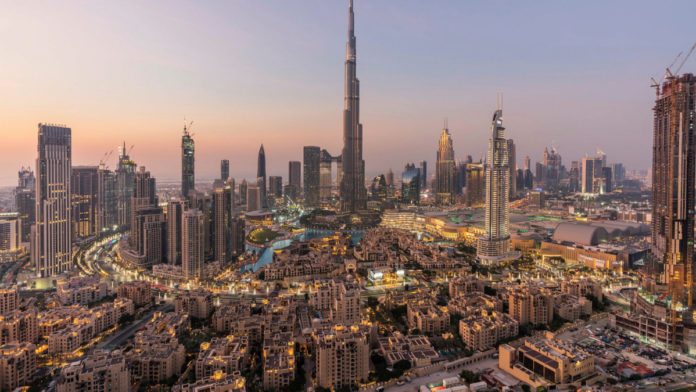Business conditions in the United Arab Emirates (UAE) improved in July as inflation edged slightly lower and employment expanded. For July, the UAE had a PMI (Purchasing Managers Index) score of 55.4, up from 54.8 and above the 50-mark separating growth from contraction.
The UAE’s input costs also eased marginally in July after soaring to an 11-year high in June, according to S&P Global. The oil-rich Gulf is among regions where inflation has remained relatively muted because of the limits on domestic fuel costs and the stability of the economy. Arab business saw a “robust speed of expansion” in its non-oil economy in July.
UAE companies increase output
UAE companies increased output, with the pace of expansion being the joint-fastest this year. Employment levels also increased significantly in the UAE because of the rapid increase in new business orders. Firms also responded to rising backlogs. The private sector companies ramp up output and increase their hiring.
The UAE had also set aside billions of dollars in inflation relief to support low-income citizens and stockpile key commodities. Inflation in the UAE is relatively low compared with rates in other parts of the world. The UAE’s consumer price index (CPI) increased by 3.4 percent during the first quarter of 2022.
UAE’s non-oil private sector
UAE’s non-oil private sector grew in July at its second-fastest pace this year as business activity picked up on strong demand and higher sales amid some discounting. According to July’s PMI data, UAE’s non-oil private sector started the third quarter on a stronger footing.
The stability of the UAE economy is commendable. The UAE has maintained strong financial reserves despite recent fluctuations in oil prices and inflation. UAE is also blessed with highly skilled human capital because the UAE possesses a distinguished wealth of young manpower. The country has also built robust relations with countries around the world.
According to recent data by Gulf News, the UAE leads all countries in terms of net inflows and outflows of high net worth individuals (HNWIs) for 2022 with 4,000 people.

